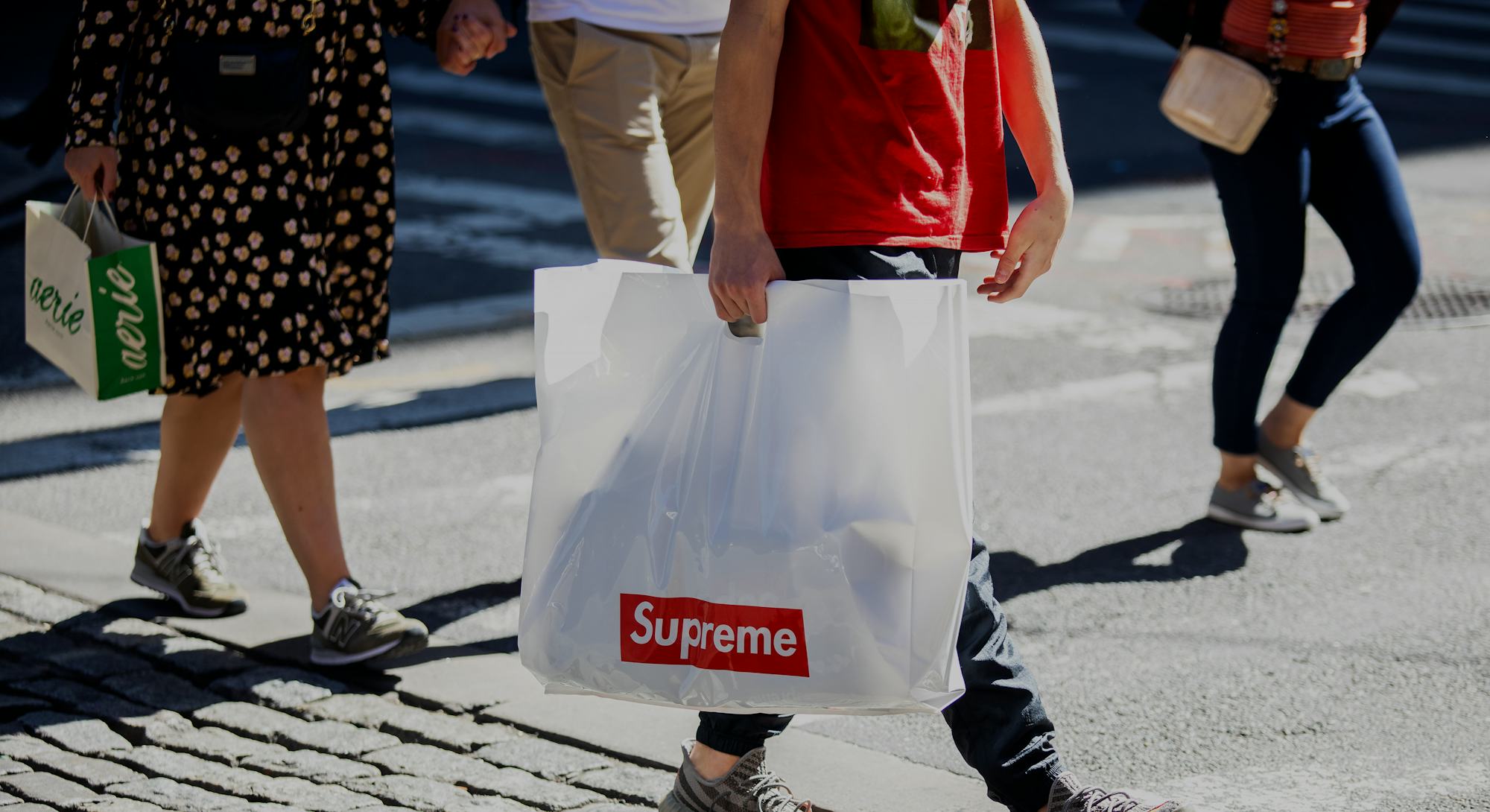New Priorities
Why does shopping feel so bad right now?
Our complicated relationship with buying things online has just gotten even more complex thanks to COVID-19. So don’t worry, you’re not alone.

I’ve been eyeing this pair of Nike x Off-White sneakers for more than a month. Every day, before and after work, I open the GOAT app, check if the price for the pair I want has fluctuated, and then I hit the buy button. But, just before I confirm my shipping address and payment details, I change my mind.
While right now may be the best time to shop for limited-edition kicks, because the resale market is in free fall, there’s only one thing stopping me from pulling the trigger: the world is too sad.
With the novel coronavirus (COVID-19) virus wreaking havoc all around us, it’s hard for me to justify buying another pair of sneakers — especially when I can’t leave my New York City apartment as a result, and it could be months before that even happens. Deeper than that, though, it’s hard to find pleasure in anything when you read about the thousands of people the illness is killing, others losing their jobs, or the healthcare workers who are in desperate need of personal protective equipment (PPE).
Shopping for rare sneakers, a major passion of mine, has suddenly become mundane compared to our new reality — one in which toilet paper, napkins, and hand sanitizer have turned into hot commodities. That’s not to say I wouldn’t get joy the moment the shoes arrived at my doorstep if I were to order them, but at the moment my main concern has become ensuring I have food, drinks, and other essentials.
And even there, the impact of the virus is noticeable as Amazon and Instacart grocery orders have basically turned into Supreme drops. “Inventory and delivery may be temporarily unavailable due to increased demand,” reads a message on Amazon’s Prime Now app. “New [shopping] windows are released throughout the day.” The demand for certain household goods is so high that, what was once an easy task, is now a fairly complicated endeavor, whether you’re trying to find groceries at the corner store or through an app.
My local stores in Brooklyn have no toilet paper on the shelves, and it took me a couple weeks to get a pack from Amazon. More often than not, the Prime Now app has no delivery windows available, but slots do open up randomly throughout the day. And when you do manage to find one, you’re lucky if the items you have in your cart are available. As someone who has spent a lot of time on Supreme and Nike launches, which are often flooded by bots, even that’s not as difficult as trying to buy toilet paper or antibacterial wipes today.
So yeah, despite my deep love of buying sneakers, the coronavirus has certainly changed my priorities. Unsurprisingly, I’m not alone. According to recent data released from Bank of America, consumer spending in the US is down 30 percent year-over-year as of March 2020. Although airlines and hotels have been the most affected due to travel restrictions intended to stop the spread of COVID-19, clothing spending is down by as much as 82 percent compared to the same period in 2019.
Naturally, that’s not great news for fashion retailers worldwide, many of which are now relying on online sales since their brick-and-mortar stores are closed for the foreseeable future. As WWD perfectly put it a few days ago, “Even if consumers are glued to the latest COVID-19 headlines, and horrors, when they do seek retail therapy by clicking through fashion sites, they’re still browsing more than buying.” That’s me with sneakers right now: I browse, browse, and browse but ultimately buy nothing.
"What’s happened recently is that our pleasure shopping, and our non-essential shopping, now has a layer of ethical complexity that was not present before," says Joseph A. Allen, Ph.D., a professor of industrial and organizational (I/O) psychology at the University of Utah. "At the same time, there are public service announcements in some communities that say 'keep ordering takeout, buying goods online, and putting money into the economy ... and remember, stay home and stay safe.' There are those who then run with that and shop to their hearts content.
“What’s happened recently is that our pleasure shopping, and our non-essential shopping, now has a layer of ethical complexity that was not present before.”
Allen added that what this all means, in essence, is that what used to be routine, impulsive decision-making situations have now become difficult tasks for many people because we're all dealing with a global pandemic: "Do I refrain from online shopping and allow healthcare workers and those who really need things to use that service? Or do I shop to help the economy? Or, am I a bad person for even thinking about it because shipping is the latest 'tragedy of the commons' and we’re running our Amazon workers and other online providers ragged?"
These internal questions consumers are asking themselves, Allen says, is what's causing people like me to transition "perhaps temporarily, to an ethical decision-making psychological framework instead of a joyful routine and an emotional impulse-driven decision-making process."
There’s no doubt that I need some retail therapy in my life, and chances are I will buy that pair I want in the near future. But until things get better out in the world, I’m probably going to keep having second thoughts about feeding my obsession with sneakers. For now, let me get back to this Prime Now app and see if I can have some toilet paper delivered before I run out of rolls.